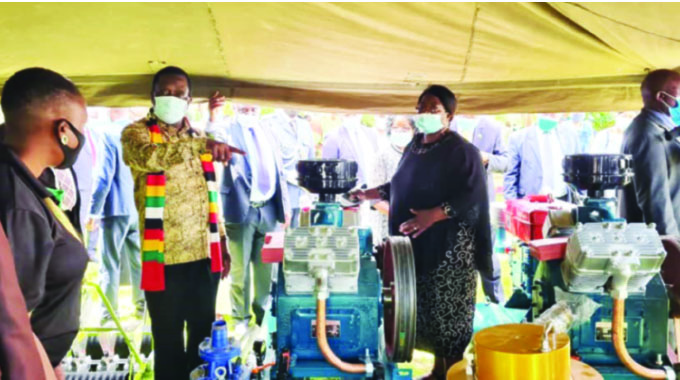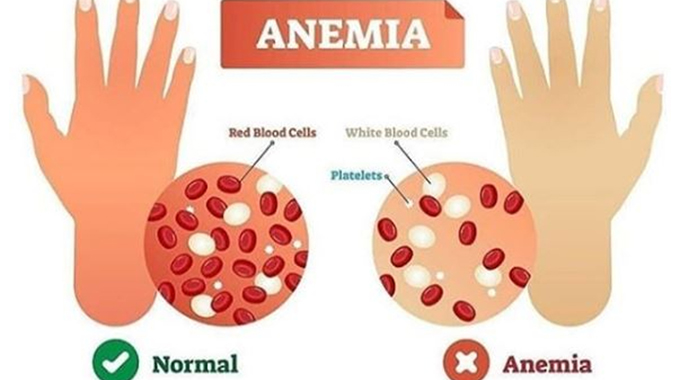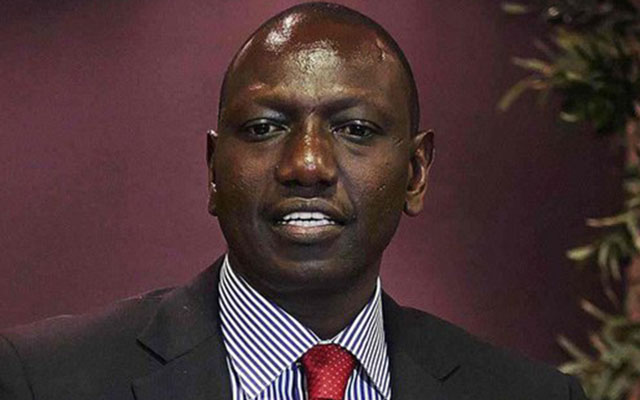Going beyond gender as Vision 2030 beckons

Elliot Ziwira and Fanuel Chakawa
SINCE 2018, the Second Republic, through the Ministry of Women Affairs, Community, Small and Medium Enterprises Development, has achieved notable results towards the empowerment of women as espoused in Vision 2030, and in line with President Mnangagwa’s call to take everyone on board.
Milestones were attained in women empowerment, gender mainstreaming, community development, and small and medium enterprises and co-operative development.
Women Empowerment and Gender Equality
Promotion of market linkages
The programme promotes market linkages for women entrepreneurs locally, regionally and internationally. A total of 24 110 women were exposed to markets through participation at various fares, such as Dubai Expo, market fairs, food fairs, open market days, Zimbabwe International Trade Fair, international expos, and International Women’s Day.
Project Funding
At least 245 projects worth $92 402 000 were funded under the Women Development Fund. The projects were in poultry, confectionery, fishing, maize meal production, livestock production, protective clothing, horticulture and goat rearing.
Skills Capacity Building
As part of the Ministry’s thrust to capacitate women to acquire skills, 31 176 women were trained in piggery and poultry production, detergents and sanitisers making, petroleum jelly production, beverages making, floor polish making, and food processing, among others.
Women Empowerment Clubs
This programme is aimed at empowering women at grassroots level, and promoting income generating activities in order to improve livelihoods and alleviate poverty. About 1 090 women’s clubs, with over 9 900 members, were established, capacitated and linked to funding. Training was conducted in various areas, which included leadership, constitution making, business skills, financial literacy, sanitary pad manufacturing, and healthcare issues.
Empowerment Projects
Under the Sustainable Women and Youth Enterprise Development project, African Development Bank has been supporting the Ministry to fund two projects. These are Women Gold Milling Service Centre in Guruve, Mashonaland Central Province, and Macimbi/ Madora/Mopane Worms/ Vegetable Processing Plant in Beitbridge, Matabeleland South Province.
About US$500 000 was released for construction works at the Guruve Gold Milling Centre, which is now at slab level. This follows construction of the access road, connection of electricity and water, and other preliminary works. At least 125 women will benefit directly, while the community at large will benefit indirectly.
The Mopane Worms Processing Plant is a value adding venture established in Beitbridge District to significantly boost food security and income generation for women and communities. Approximately US$300 000 was availed towards establishment of the plant which was operationalised in 2020. In excess of 1 000 kilogrammes of madora are processed and packaged for sale to local shops and those in Masvingo Province.
Community Development
The Ministry administers the Zimbabwe Community Development Fund (ZCDF), which supports various livelihood community projects. A total of 185 projects worth $32 674 991, 63 were financed under the Fund targeting 2 962 beneficiaries (1 514 females and 1 448 males). The projects were in agriculture, manufacturing, tourism, trade, mining and waste management sectors.
Muchapondwa Community Garden
In 2018, the Ministry embarked on a pilot programme of resuscitating community gardens in the eight rural provinces of Zimbabwe. Muchapondwa Community Garden in Mashonaland Central Province is one of the projects that benefited from the Zimbabwe Community Development Fund. The project is still thriving and has now ventured into fish farming.
Carol Collections
Carol Collections, now popularly known as Picmost Collection, was supported under the Fund in 2019. It operates from Chitungwiza Arts Centre. Their products have reached international markets in Africa, Asia and Europe.
Chenai Community-based Organisation
Chenai Recycling Project is one of the thriving community-based waste management projects which was supported in 2020 through the ZCDF. Due to its unique initiative, it also received an award from the Environmental Management Agency in 2021 after receiving funding from the Ministry.
Skills and Entrepreneurship Development
The Ministry has been training community groups comprising women and men on internal savings and lending (ISALs), food processing, detergent making, petroleum jelly manufacturing, floor polish making, candle making, climate proofing, smart agriculture, fish farming, small livestock production, tsotso stove making, environmental protection, stock feeds production and beef enterprising.
The training sessions are conducted through the Ministry’s two centres; National Training Centre for Rural Women and Rodger Howman National Training Centre in Masvingo.
Rodger Howman National Training Centre
Construction of Rodger Howman female hostel, which is almost complete, is one of the initiatives of the Public Sector Investment Programme (PSIP). Its renovations resumed in 2019, and work is still in progress. A female hostel with a capacity to house 38 students, and a standard precast wall with razor wire, has been erected.
Internal Lending and Savings Groups (ISALs)
Community groups comprising women and men were trained on internal savings and lending schemes (mukando). They formed the ISAL groups, which have enabled them to buy kitchen utensils, building materials and other household goods.
Some of the goods bought through the ISAL savings include gas stoves, bed covers, lounge suites, kitchen utensils and groceries.
Detergents Making Training
Communities were trained on entrepreneurship development, detergent making and food processing. During their practical training, they managed to produce petroleum jelly, dishwashing detergents, fruit juices, roasted corn, roasted peanuts and dried vegetables.
Training of community-based Entrepreneurs on Registration, Quality Standards
The Ministry has been capacitating communities through knowledge skills transfer and financial support on value addition of local resources. Pilot workshops were conducted in collaboration with Standards Association of Zimbabwe (SAZ) in Mashonaland East, Mashonaland West, Midlands and Matabeleland South provinces, aiming to equip participants with knowledge on how to acquire SAZ certification and quality standards of processed products to enable them to penetrate formal markets.
Small and Medium Enterprises, Cooperative Development
- a) Entrepreneurship, business management, corporate governance and technical skills development
In order to improve technical and business management skills, the Ministry has training as one of its flagship programmes to support MSMEs. Since 2018, 137 900 MSMEs have been trained in technical and business management skills throughout the country’s 10 provinces. Start-up development training programmes were also conducted.
The MSMEs were trained in costing, record keeping, entrepreneurship, patenting and branding, marketing, quality assurance, starting and expanding businesses, stock control, proposal writing, and beekeeping, among other business management courses.
Market Development and Trade Promotion
Under this programme, 25 132 MSMEs were exposed to markets through participation in local and international fairs and exhibitions such as the ZITF, agricultural shows and in other countries like Malawi, Tanzania, Zambia, Mozambique, Botswana, Eswatini, Namibia, Japan, Dubai and Indonesia.
Furthermore, the Ministry promotes and facilitates business linkages between MSMEs and large companies. 1 344 linkages involving 5 245 SMEs were created in sectors such as furniture manufacturing, aquaculture, horticulture, retailing, food processing, beekeeping, market gardening, and construction in the last two years.
Micro, Small and Medium Enterprises (MSMEs) Financial Support
Approximately $728 997 475 was disbursed by SMEDCO to 1 380 SMEs projects throughout the country in sectors which include manufacturing, agriculture, mining, tourism and retailing, among others. The support provided to MSMEs created and sustained 8 398 jobs. About US$9, 3 million was extended to the sector with support from development partners, who include UNDP, OPEC Fund for International Development (OFID), and the European Union.
OFID SME Project for Poverty Alleviation
The Ministry disbursed US$6 975 776 to 210 beneficiaries in Manicaland, Masvingo and Matabeleland North provinces between 2019 and 2021. The project funded entrepreneurial initiatives in livestock development, optimisation of local resource endowments and savings and credit cooperatives.
SME funding through banks
In addition, the Ministry lobbied, through the Reserve Bank of Zimbabwe, for the creation of MSME financial windows by financial institutions with a view to increase funding for MSMEs. The response has been tremendous with almost all financial institutions now having SME windows. According to the RBZ Monetary Policy Statement of February 2022, there is an increase in the value of loans extended to the sector.
The value of loans provided to MSMEs by financial institutions increased from $462, 99 million in 2019 to $10, 28 billion as at December 31, 2021. Financial inclusion is also increasing, which has seen the number of MSMEs with bank accounts rising by 20 percent annually from December 2019.
Inclusive Growth and Sustainable Livelihoods Project (IGSL): 2016 – 2021
The Inclusive Growth and Sustainable Livelihoods Project facilitated the setting up of honey and vegetable value addition centres in Gokwe South and Lupane districts. The centres are now complete with water and electricity installations having been done.
Seven value addition initiatives were established and 218 beneficiaries (142 females and 76 males) were empowered to run the enterprises in clothing manufacturing, fruit and vegetable drying, honey processing, plastic waste recycling, art and crafts and baobab processing.
Workspace and Infrastructure Support
The Ministry, through the Ministry of Local Government and Public Works, other line ministries, local authorities and key partners, is promoting the provision of modern workspace to MSMEs via Public-Private Partnerships (PPPs).The work space will contain basic utilities like water, access roads, ablution facilities, parking space, restaurants, show rooms and internet connectivity.
To demonstrate this policy endeavour, the Government is supporting the construction of workspaces in Gwanda, Chivhu and Gweru. The Ministry, in collaboration with International Labour Organisation, Old Mutual, the Chamber of SMEs, Bulawayo City Council, National University of Science and Technology (NUST), National Social Security Authority (NSSA), undertook refurbishment of the Bulawayo SMEs Centre to the tune of US$165 000. The Ministry, in partnership with UN Women, worked on the construction of a Safe Market in Epworth with a capacity to house 96 female vendors.
From 2018, the Ministry facilitated the allocation of workspace to 25 132 MSMEs countrywide. Space available is in the form of factory shells, for the SME productive sector.
The Ministry recently held a conference on workspace development where the Ministries of Local Government and Public Works, National Housing and Social Amenities, pension Funds, banks, Local Authorities, Ministers of State for Provincial Affairs and Devolution and their Provincial Secretaries were invited to deliberate on this critical issue. The emphasis was on close partnership to the development of modern workspace from SMEs in the country through local authorities possibly using some of the devolution funds, or through Private Public Partnerships. Workspace development will aid the Ministry’s thrust towards formalisation of our SMEs.
Cluster Development
The Ministry galvanises MSMEs into clusters for ease of provision of business development support services. A total of 220 clusters were supported since the coming on board of the New Dispensation. Support services such as business management training, market linkages, association building and provision of equipment, among other business development support services, were provided.
The clusters are in leather works, clothing, beekeeping, horticulture and carpentry. Flagship clusters supported are Harare and Bulawayo leather clusters and Chitungwiza clothing cluster, which were supported with machinery from COMESA valued at US$250 000.
The Chitungwiza cluster specialises in the production of school uniforms and formal wear as well as doing cut, make and trip under toll manufacturing for big retail chains.
Association Building
The Ministry encourages the formation and strengthening of SMEs associations to enhance their capacity to effectively lobby and represent the interest of their members with other stakeholders. During the first quarter of 2022, the Ministry supported the Zimbabwe Chamber of Small and Medium Enterprises to restructure its District, Provincial and National Chapters and this will assist in articulating the needs of the SMEs sector in Zimbabwe.
Cooperative Registration and Trainings
The Ministry is mandated to promote the formation of cooperative societies in all sectors of the economy. A sum of 1 871 cooperatives have been registered and 74 100 co-operators were trained under the Second Republic. The co-operators were trained in various aspects of cooperative management. The training consists of pre-registration, post-registration cooperative principles, values, governance, collective marketing, value chain development, bookkeeping and financial literacy.
Handover of Title Deeds to Yemurai Housing Cooperative
After completion of all requisite developments and compliance with Section 101 of the Cooperative Societies Act, Chapter 24:05, Yemurai Housing Cooperative was handed title deeds on October 5, 2020.
It was a momentous and unique event, for the co-operators had pooled their meagre resources to provide affordable and decent accommodation for themselves. Housing cooperatives have played a critical role in providing shelter to low income earners, especially in urban areas.
Northwing Housing Cooperative, Marondera Rural
Northwing Housing Cooperative is a registered cooperative with 322 members. It was given land by Marondera Rural District Council in 2005. The cooperative members pooled their resources and self-financed the housing project. Water reticulation, bridge construction and electrification are some of the projects undertaken by the cooperative.
Hopley Housing Cooperative Union: Southlands Sewer Reticulation System
The construction of Southlands sewer plant in Hopley, Harare South, was done by Hopley Housing Cooperative Union, which comprises 18 housing cooperatives with a total membership of 843.
The Southlands sewer is a waste collection disposable and processing plant currently connected to 843 houses. It was funded by the Hopley Housing Cooperative Union through a US$102 000 loan from ShelterSol, a private organisation.
Installation of the Digital Online Registration System
The Ministry managed to develop an online cooperative registration system. The system has improved on and simplified cooperative name search, thereby preventing duplication of names by cooperatives. It improves the registration process of cooperative societies. The Ministry is also currently working towards the review of the cooperative model having embarked on a study tour of Rwanda.
Zimbabwe Women’s Microfinance Bank
In another milestone, the Ministry of Women Affairs, Community, Small and Medium Enterprises Development partnered the United Nations, Ministry of Finance and Economic Development and the Reserve Bank of Zimbabwe (RBZ) to open the Zimbabwe Women’s Microfinance Bank (ZWMB) with Dr Mandas Marikanda as the chief executive officer. The bank was officially launched by President Mnangagwa on June 25, 2018.
Zimbabwe Women’s Microfinance Bank’s mission is to empower all women economically and socially. The bank is making strides in answering financial exclusion matters relating to:
- Relaxed, know your customer requirements,
- offering services for remote unbanked and underbanked,
- offering alternative collateral for those who want to borrow,
- offering products that respond to client needs,
- Lifting the cap on age limit to be served,
- Offering another chance for those blacklisted from the financial sector.
Why a women’s bank?
- To address issues of financial exclusion among women and the vulnerable groups.
- To ensure that no one is left behind.
- To ensure the provision of women centric products that address major concerns among women and marginalised groups.
- The Women’s Bank is, thus, a strategic asset for the whole nation, and it is central to the fulfilment of the Financial Inclusion Agenda.
- The Bank is the appropriate vehicle to complete the empowerment of all women economically and socially in Zimbabwe.
Mandate and Outreach
The Women’s Bank has, during the four years of its existence, demonstrated capacity to reach out to its target market.
Over 120 000 accounts have been opened, and the value of loans disbursed is more than $470 million.
Branch Network and Distribution
Through partnership with various stakeholders, the bank now has representation in all the country’s 10 provinces. It has branches and offices in Harare, Bulawayo, Gweru, Mutare and Masvingo. It has registered fixed agencies as well as mobile agents to complement its distribution efforts.
Products and Services
The wide array of products on offer has enabled the bank to be responsive to women’s needs. The following is a list of some of the product offering:
- Micro farming
- Micro entrepreneur
- Value chain financing
- Asset finance-micro leasing
- Salary-based loans
- Educational loans
- Instant Katsaona loans
- Medical and funeral insurance
The bank as a tool for Achieving NDS 1
Under the National Development Strategy 1, the bank is focusing on the following key areas, which include women empowerment, small and medium enterprises development, community development, gender mainstreaming and cooperative development.
The bank endeavours to improve and increase participation of women in key economic sectors, as well as improve social empowerment of women and girls. This will ultimately lead to a rise in household incomes, growth of small and medium enterprises, upliftment of livelihoods, and increased resilience of communities. The continued capitalisation of the bank provides more capacity to empower women countrywide as Vision 2030.
With research revealing that only 27 percent of women have access to formal banking products, and accounting for only 10 percent of total bank loans, a financial institution like Zimbabwe Women’s Microfinance Bank can go a long way in empowering the fairer sex, and attainment of an upper-middle income economy by 2030.









Comments